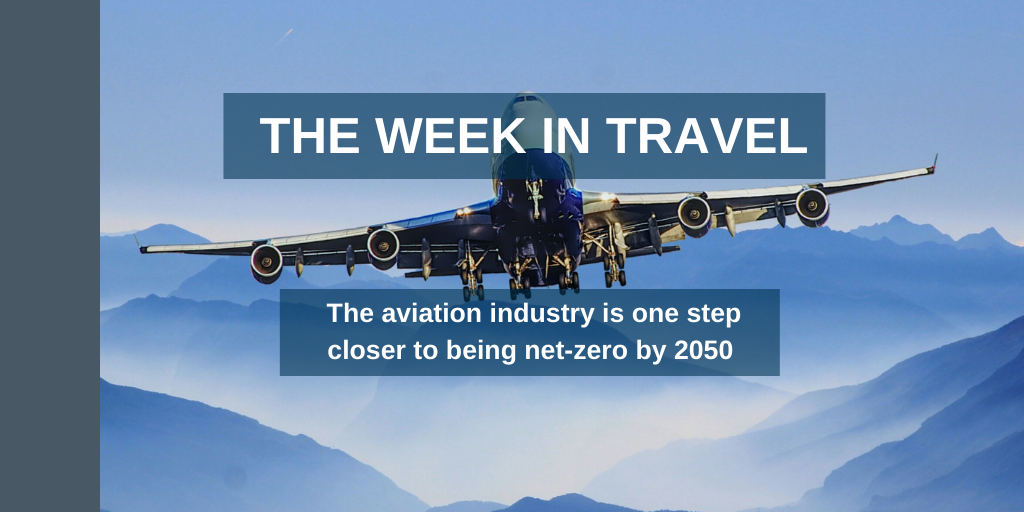The Week in Travel - 11th February 2022

This week the organisation which represents over 200 airports across 27 countries - Airports Council International Europe - announced that airports and other key industry stakeholders across the region have endorsed the Toulouse Declaration agreement to support the aviation industry’s net-zero 2050 goal. This marks the first time that there has been a formal agreement between the European Commission, member-states, the aviation industry, and unions on addressing the climate crisis. The initiative was advanced by the French Presidency of the EU and is a joint effort by members of both the public and private sectors.
The push for a greener future for the aviation industry was not limited to the European Union. Leaders at Heathrow airport also announced a plan to develop and grow sustainably over the next 10 years. Heathrow 2.0 involves aiming to reduce carbon from flights by 15% by 2030 and reducing carbon produced on the ground by 50%. Additionally, the project aims to improve social mobility within the business by introducing the London living wage to its 1300 employees by the end of April.
In Asia, South Korea-based Incheon International Airport Corporation (IIAC), along with Air Liquide, Airbus and Korean Air, agreed to explore possibility of the further use of hydrogen at the airport. The partners will also focus on the development of airport infrastructure for the deployment of hydrogen-powered commercial aircraft. This news follows a similar agreement in September 2021 between Vinci Airports and Air Liquide.
Frontier and Spirit Airlines announced a $2.9 billion merger deal, and in doing so have formed the fifth largest airline in the US. The budget carriers aim to offer more affordable prices to passengers across the Americas. They estimate that they will have created an extra 10,000 extra jobs by 2026.
And finally, Elon musk tried to offer $5,000 to a 19-year-old college student named Jack Sweeney via direct message on Twitter, in exchange for his flight-tracking Twitter bot to be taken down. Musk says the bot was seen as a “security risk” and he “doesn’t love the idea of being shot by a nutcase”. The account, known as @ElonJet on Twitter has gained global attention posting location updates on Elon Musk’s private jet to 376,000 followers. Sweeney replied to Musk with a counter-offer of $50,000 which he joked would help pay for school fees and a shiny new car. Musk is yet to respond, but the jet stalker lives on and continues to legally track the multi-billionaire’s journeys using publicly available data.